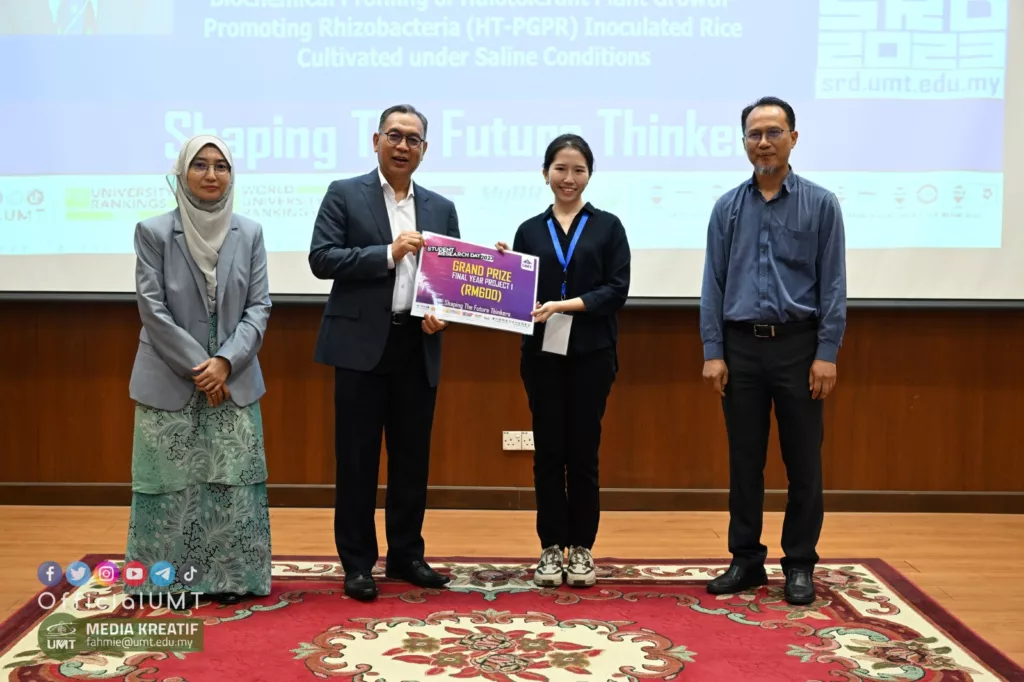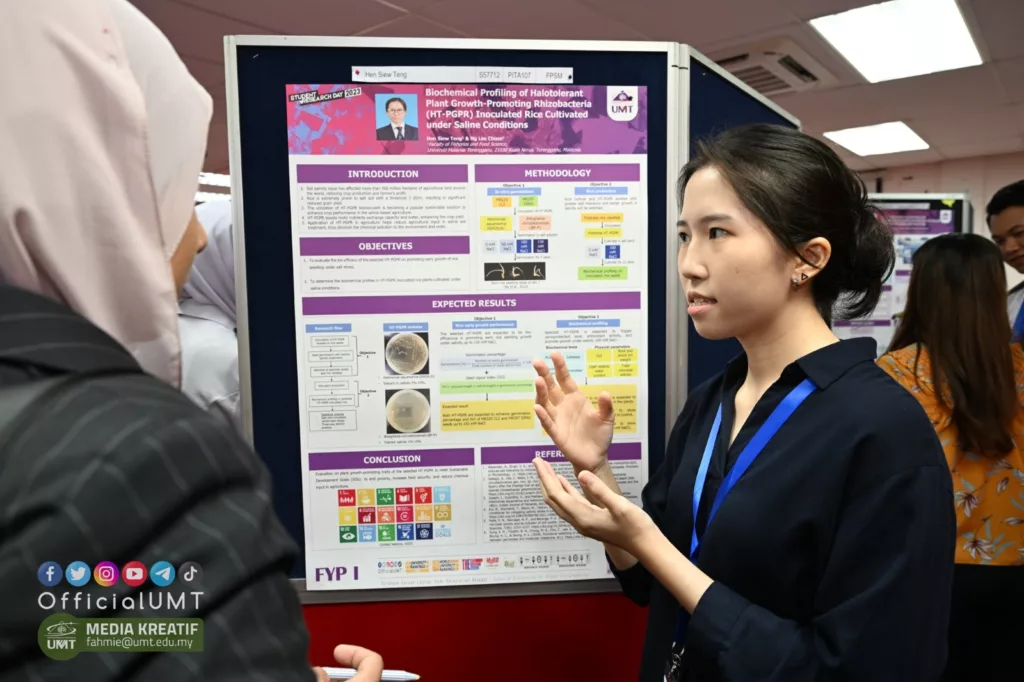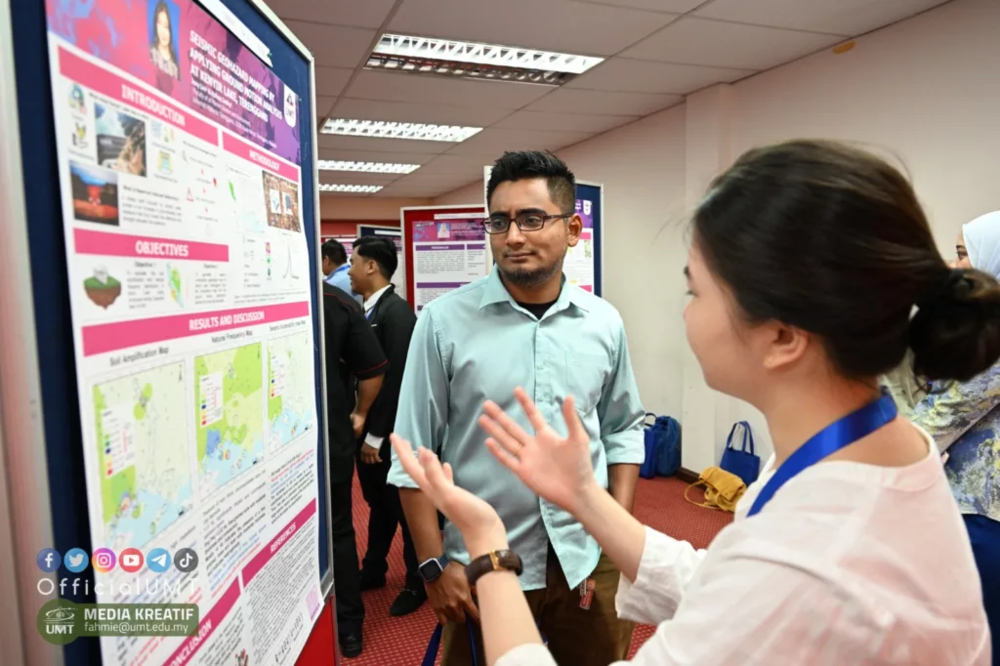UMT REPLANTS CORALS AS STEP TOWARDS MARINE ECOSYSTEM CONSERVATION
Sunday, 11/06/2023
Coral reefs are natural ecosystems formed at the bottom of the ocean, and interestingly they are categorized as animals. These unique living beings function as protectors of the seashores, preventing them from the strong impact of the ocean waves. In addition, coral reefs are important to fry due to their safe surrounding and easy availability of food.
According to a study published by “proceedings of the royal of society journal,” a part of the largest coral reef in the world, the Great Barrier Reef, has been dead since 1995 as a result of increased ocean temperature and climate change.
The situation became worse when the ecosystem experienced large-scale coral bleaching during 2016-2017, which destroyed about two-thirds of the coral reefs. The bleaching still occurs until the present day.
An increase in the ocean temperature also creates stress to these living organisms leading to bleaching and death of the corals.
In addition, the unbalanced acid-alkaline values have also become a disturbance to the coral reef ecosystems and prevented them from sustaining themselves.
As part of the ecosystem conservation measures, Universiti Malaysia Terengganu (UMT) has doubled the effort by collaborating with corporate agencies to disseminate the importance of ocean conservation to the society.
In conjunction with the World Oceans Day that is celebrated every 8 June annually, UMT has collaborated with Aquaria KLCC to organize the Coral Conservation Expedition at UMT Marine Natural Research Station on Bidong Island.
The programme that was organized for the first time has also drawn the attention of 40 volunteers comprising people from different age groups and professions.
UMT Vice Chancellor Prof. Dato’ Dr. Mazlan Abd Ghaffar said that the programme was an effective measure in the effort to conserve the corals that have experienced deterioration.
“We at UMT take the responsibility in the environmental and ecosystem conservations. The awareness campaign has started since several decades ago and it has not been easy to educate the society to care for the oceans.
“This effort needs involvement from everyone in order for its effectiveness to be realized more immediately so that the natural ecosystem conservation can be completed within a shorter time.
“A sustainable environmental ecosystem will contribute towards the well-being of our lives and those of future generations.”
The expedition project that was launched at Aquaria Kuala Lumpur also received a fund totalling RM200000 for starting the coral conservation and awareness campaign activities.
Meanwhile, coral expert from the Faculty of Science and Marine Environment at UMT, Assoc. Prof. Dr. Tan Chung Hong, said the instability of the ocean’s temperature because of the hot weather lately will also give negative effects to the corals.
“If the hot weather continues for a long time, the corals will die. If the ocean’s temperature returns to normal within two weeks, the corals will undergo a restoration process and their colours will return to normal.
He added that the rate of coral growth is very slow and it takes roughly a year for the corals to reach the length of 10 centimetres.
Several activities were successfully held including environmental maintenance briefing, sharing sessions with coral researchers from UMT, and introduction to coral replanting.
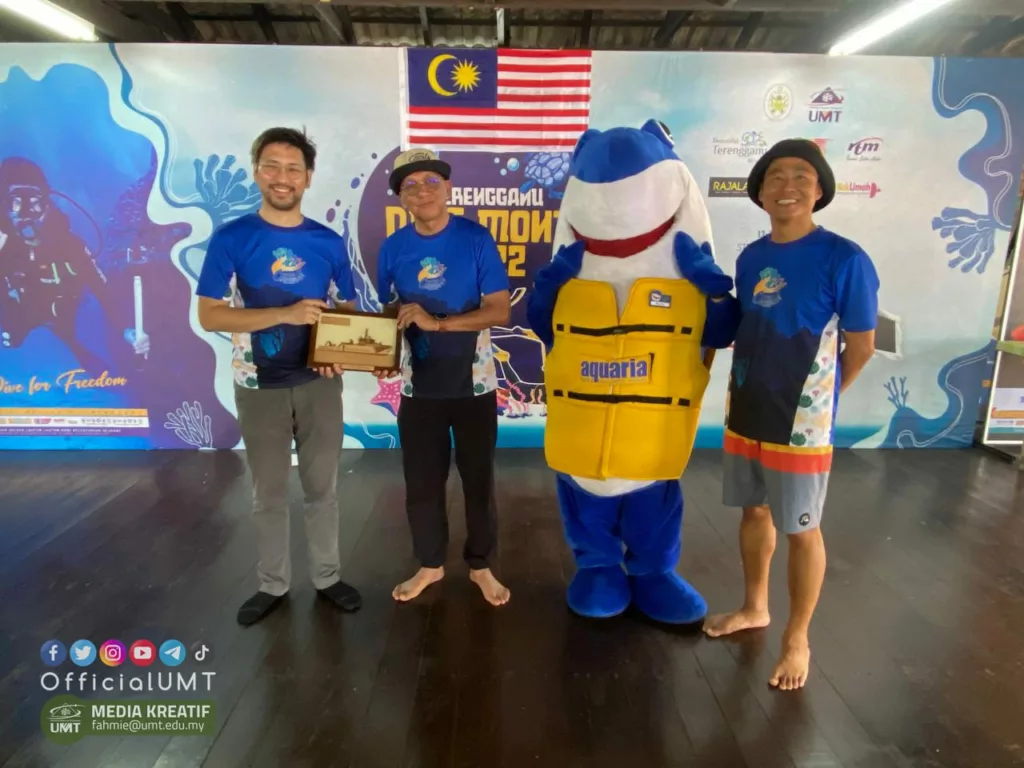
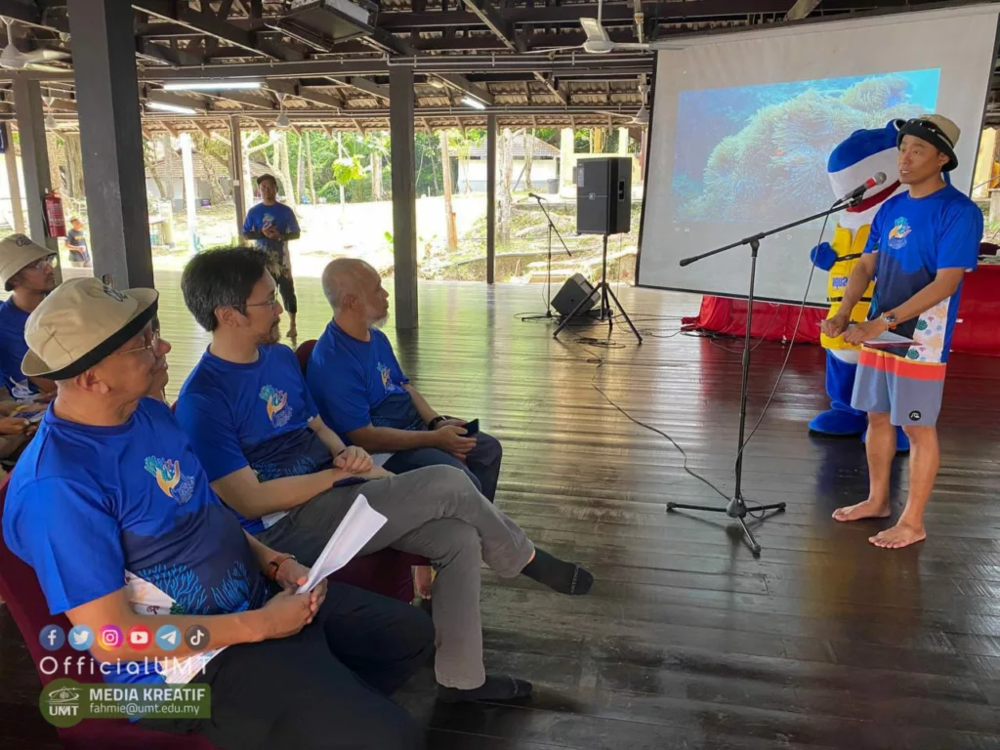

Student Research Day 2023
Wednesday, 05/07/2023
Student Research Day 2023 is one of the initiatives by Universiti Malaysia Terengganu (UMT) that allowed students to display their creativity, innovation, and the spirit of entrepreneurship, which carry a significant impact in facing the challenges of the Industrial Revolution 4 (IR4.0).
Deputy Vice Chancellor (Academic & International) Professor Ts Dr. Mohd Zamri Ibrahim said the event is part of UMT’s effort in producing innovative graduates.
“It is meant to encourage students to become innovative and to provide exposure to the local community and industry about the latest research projects undertaken by UMT students.
“More than 2,000 students participated in the competition. They presented their final year research projects, which were evaluated by a panel of judges consisting of lecturers and representatives from government agencies, industry, and experts in various fields.
Dr. Zamri said involvement from the industry is important as students’ works can be evaluated by the industry people, which increase the opportunities for future employment with their companies.
Grand prize winner Heng Siew Teng from the Bachelor of Agrotechnology Science (Crop Science) considered the winning as a booster for her to more creative in coming up with new innovations.
“My project, titled “Biochemical Profiling of Halotolerant Plant Growth- Promoting Rhizobacteria (HT-PGPR) Inoculated Rice Cultivated Under Saline Conditions,” is intended to help farmers plant paddies on saline soils.
“Rhizobacteria separated from the root zone halofit can withstand salt and will be noculated into paddy seeds.
“This project is expected to increase paddy productivity, reduce the use of chemical substances in agriculture, and indirectly improve food security in Malaysia,” she said. For winning, she took home RM600 cash prize, a certificate, and trophy. The prize giving took place during the closing ceremony at Auditorium Mahyuddin yesterday.
Set up in 1979 as Fisheries Centre, UMT has gone through several changes to become what it is today, and the university has made a name for itself at various levels through its academic achievements, research, innovation, and student development initiatives.
Among the achievements and recognitions obtained include being ranked in Times Higher Education (World University Rankings), Times Higher Education (Impact Rankings), Times Higher Education (World University Rankings by Subject), QS World University Rankings, QS University Rankings (Asia), UI GreenMetric, MyMoheS, Malaysia Research Assessment (MyRA) and SETARA.
